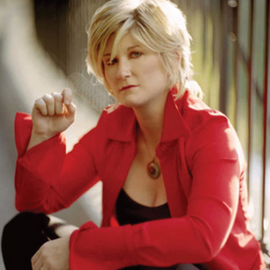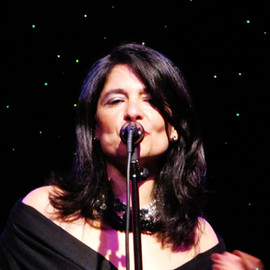
Sheila Jordan
A Living Legend

Raised in poverty in Pennsylvania's coal-mining country, Jordan began singing as a child and by the time she was in her early teens was working semi-professionally in Detroit clubs. Her first great influence was Charlie Parker and, indeed, most of her influences have been instrumentalists rather than singers. Working chiefly with black musicians, she met with disapproval from the white community but persisted with her career. She was a member of a vocal trio, Skeeter, Mitch And Jean (she was Jean), who sang versions of Parker's solos in a manner akin to that of the later Lambert, Hendricks And Ross.
After moving to New York in the early 50s, she married Parker's pianist, Duke Jordan, and studied with Lennie Tristano, but it was not until the early 60s that she made her first recordings. One of these was under her own name, the other was “The Outer View” with George Russell, which featured a famous 10-minute version of "You Are My Sunshine".
In the mid-60s her work encompassed jazz liturgies sung in churches and extensive club work, but her appeal was narrow even within the confines of jazz. By the late 70s jazz audiences had begun to understand her uncompromising style a little more and her popularity increased - as did her appearances on record, which included albums with pianist Steve Kuhn, whose quartet she joined, and an album, Home, comprising a selection of Robert Creeley's poems set to music and arranged by Steve Swallow.
A 1983 duo set with bassist Harvie Swartz, “Old Time Feeling”, comprises several of the standards Jordan regularly features in her live repertoire, while 1990's “Lost And Found” pays tribute to her bebop roots. Both sets display her unique musical trademarks, such as the frequent and unexpected sweeping changes of pitch, which still tend to confound an uninitiated audience. Her preference to the bass and voice set led to another remarkable collaboration with bassist Cameron Brown, whom she has been performing with all over the world for more than ten years so far and they have released the live albums “I’ve Grown Accustomed to the Bass” and “Celebration”. Entirely non-derivative, Jordan is one of only a tiny handful of jazz singers who fully deserve the appellation and for whom no other term will do.





























